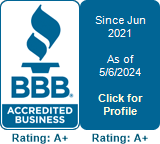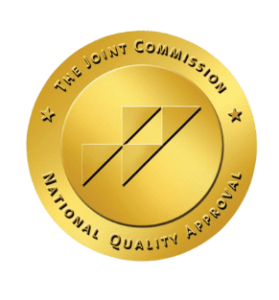Social stigmas surrounding addiction and mental illness are one of the most common barriers preventing people from getting the help they need. When you or someone you care about is struggling with addiction, it’s important to understand these stigmas and how to overcome them.
What Is a Stigma?
A stigma is “a strong feeling of disapproval most people in a society have about something, especially when this is unfair.” In the United States, both addiction and mental illness carry strong stigmas. As a result, many people struggling with addiction do not reach out for help because they are worried about what others think and often feel ashamed of their issues, fueling the cycle of addiction.
How widespread is the issue? Approximately 90 percent of individuals with substance use disorders do not receive treatment. If our society is committed to helping people struggling with these issues, we have to work to destigmatize addiction and mental illness.
Common Stigmas Around Addiction
When someone is struggling with addiction, some common misconceptions that drive stigmatization include:
- They chose to become addicted, and it is their fault.
- Their addiction is the only thing that defines them as a person.
- Only homeless people can struggle with addiction.
- People with addictions are violent, dangerous, and unpredictable.
The Harm of Stigmas to People With Addictions
The danger of these misconceptions when most people believe them to be true is that people with addiction issues often accept them at face value. As a result, these social stigmas become self-stigmas, and when that happens, it causes people to feel shame about their challenges. When someone feels ashamed, they are less likely to be open and honest about their struggles, which is a critical first step on the road to recovery.
How To Overcome Addiction Stigmas
Stigmatizing beliefs and behaviors are a social issue that’s bigger than any one individual or group. However, don’t underestimate the impact you can have by working to overcome these stigmas. These are some places to start:
Talk To Someone With These Issues
Stigmas surrounding addiction are rooted in generalized misconceptions that our society perpetuates without firsthand experience. In fact, people who know someone struggling with these issues are less likely to believe the stigmas surrounding them. When someone has never known someone struggling with addiction, they are more likely to perpetuate common misconceptions that they assume to be true.
Simply talking to someone struggling with addiction can show you they are people too, and they are not merely defined by their addiction. Rather, they are unique individuals, each with a story to tell, ambitions, and challenges they are working to overcome.
Be Critical of Portrayals in Pop Culture
Our society perpetuates stereotypes and misconceptions surrounding addiction. Watch out for how people struggling with addiction issues are portrayed in movies, TV shows, and the news. Without direct experience, it’s easy to subconsciously buy into these generalizations without recognizing they are not necessarily true. While media portrayals of addiction have improved in recent years, it’s still important to watch with a critical eye.
Encourage Someone Who May Need Help
If you suspect someone you know might be struggling with addiction, it’s important that you don’t avoid the issues it’s causing, especially if they seem serious. Again, if they are trying to keep their problems a secret, it is most likely because they feel ashamed. Honest communication and nonjudgmental listening may provide an avenue for them to open up when they are ready.
Understand the Implications of Labeling
When talking about addiction, it’s important to understand the language you use matters from a psychological standpoint. For example, calling someone an addict, alcoholic, or substance abuser can cause someone struggling with these issues and the people around them to believe they are defined by that and nothing more.
What can this lead to? One study found referring to someone as a “substance abuser” rather than a person “having a substance use disorder” led people to implicitly assume the former was:
- Less likely to benefit from treatment
- More likely to benefit from punishment
- More likely to be socially threatening
- More likely to be blamed for their difficulties
- Able to control their substance use
The language we use to talk about addiction carries with it implicit stigmas, and labeling someone an addict causes the individual and our society to assume they are defined by that and nothing more.
ALYST Is Committed to Reducing Stigmas Around Addiction
At ALYST Health, we’re working to overcome common misconceptions and stigmas around addiction treatment. One of the ways we’re working toward this is by making addiction recovery possible for anyone with a fully at-home approach to treatment. If you or someone you care about needs help with addiction issues but are concerned about how treatment might impact what others think, reach out to our team. Because all services are provided from the comfort of your own home, we’re able to guarantee a level of privacy and confidentiality that isn’t possible with conventional treatment methods.






